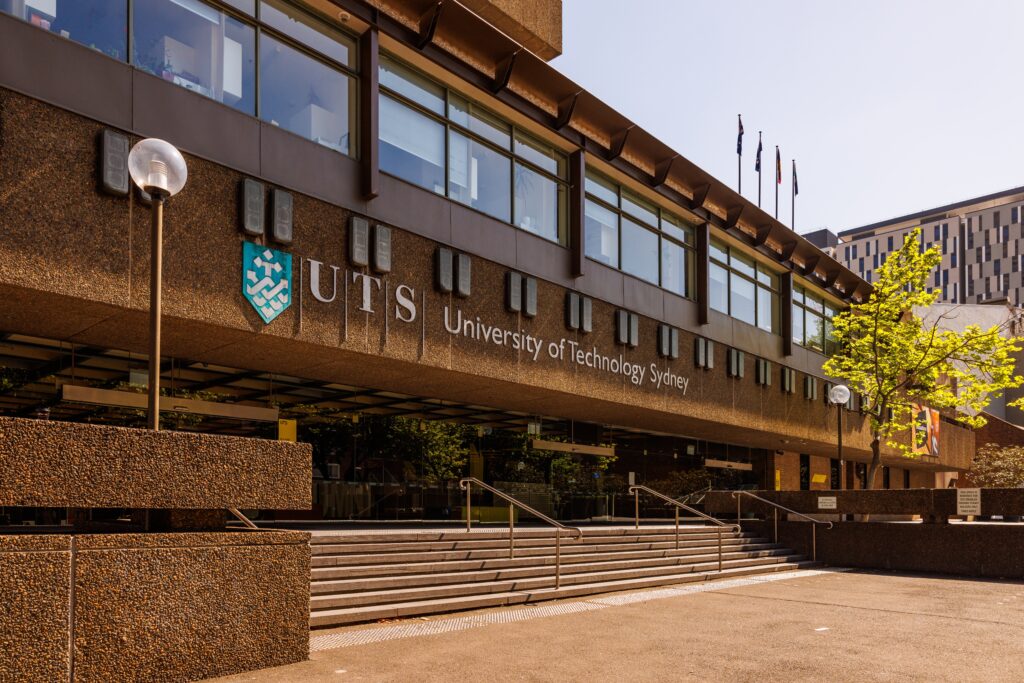Australia has just emerged from one of the worst global health crises in living memory. COVID-19 showed us how critical public health expertise is to protect lives, guide governments and support vulnerable communities. It also exposed workforce shortages across public health, health services management, palliative care and diabetes education — all areas the University of Technology Sydney (UTS) has proposed to cut on Wednesday, 17 September, as part of their so-called “Operational Sustainability Initiative”.
UTS is proposing to disestablish the School of Public Health, erasing decades of teaching, research and expertise. The Bachelor of Public Health, Master of Public Health, Graduate Certificate in Diabetes Education and Management, Master of Health Services Management and Master of Palliative Care are all facing closure.
This is not just a restructuring decision. It is an attack on the future of public health; and it comes only a few years after a global pandemic reminded us how much societies depend on strong, independent public health research and education. Considering the dismantling of a School of Public Health at this time appears to be bizarre, short-sighted and reckless to me.

Why this matters
Public health education underpins the ability to respond to emerging threats, from pandemics and antimicrobial resistance to climate change and chronic disease. Closing programs weakens the training of future practitioners and undermines Australia’s capacity to respond to national health security challenges.
Health services management is equally vital. COVID-19 made it clear that good clinical practice cannot succeed without robust systems, governance and management. Postgraduate training in palliative care and diabetes education provides highly specialised skills urgently needed in both hospitals and community care. These are not “extras”, they are essential.
The Australian Universities Accord Report (2024) and the NSW Health Workforce Plan 2022–2032 both highlight workforce shortages in precisely these areas. At the moment when governments are calling for more graduates, one of Australia’s Schools of Public Health is being dismantled.
More than numbers on a spreadsheet
My own research has focused on the health and wellbeing of LGBTIQA+ communities, substance use and sexual health. These are not abstract academic exercises — they are issues that cost lives, money and opportunities.
Our research across the School has consistently prioritised marginalised populations, from Indigenous health to culturally diverse communities, young people and those experiencing health inequities. Weakening this research base silences critical voices at a time when inequities are widening again.
In this aspect, an important distinction has to be made: public health doesn’t lose money — it costs money. Every dollar invested in prevention, equity and health promotion saves many more in treatment, hospitalisation and lost productivity. Reducing this to a spreadsheet calculation misses the purpose of public health entirely. Public health is an exercise in social justice, one of the core values of UTS.
Australia was under-prepared for COVID-19. Workforce shortages were a central reason. The Senate Select Committee on COVID-19 Final Report (2022) called for investment in workforce planning, education and resilience. UTS, instead, is closing one of the very institutions designed to provide it.
The human and sector-wide cost
The proposed closures will have significant consequences for both students and the health workforce. Many students in these programs come from diverse and disadvantaged backgrounds, including those from low socio-economic communities, first in their family to attend university and negatively racialised groups. Removing these pathways risks undermining equity in the health workforce pipeline and narrowing the diversity in our future public health leadership.
Furthermore, the impact extends beyond education. Graduates of these programs contribute directly to hospitals, community health organisations, government agencies and NGOs. Their expertise is critical in areas such as harm reduction, Indigenous health and chronic disease prevention. Disestablishing these programs would not only disadvantage students but also weaken the broader health system that depends on their skills and research.
Finally, the closures call into question the alignment of university priorities with their stated social justice values. The dismantling of established public health programs in favour of short-term financial rationalisation risks eroding the principles of equity and community engagement that universities are meant to uphold and upon which their social license depends.
What should happen instead?
Rather than cutting programs, the priority should be to strengthen them. That requires:
- Investment in workforce capacity: Governments and universities must expand training in public health, health services management, diabetes education and palliative care – not reduce it.
- Collaboration across sectors: Curricula should be co-designed with health departments, professional bodies and industry partners to ensure graduates meet workforce needs.
- Equity and inclusion: Maintaining these programs safeguards access for first-in-family, low-SES and negatively racialised students who remain underrepresented in health leadership.
- Recognition of public value: Disciplines such as public health may not generate the same revenue as engineering or business, but their social and economic contributions are substantial and far-reaching.
Australia cannot afford to repeat the mistakes of the past. Disinvesting in public health education will leave the country less prepared for the next pandemic, less able to address chronic disease and less equipped to meet the needs of an ageing population.
The proposed closures are more than a university decision, they are a public health issue. At a time when Australia urgently needs more trained experts, UTS is proposing fewer. The pandemic taught us, at extraordinary cost, that public health is not expendable.
Daniel Demant is an Associate Professor of Social Epidemiology with the School of Public Health at UTS.
The statements or opinions expressed in this article reflect the views of the authors and do not necessarily represent the official policy of the AMA, the MJA or InSight+ unless so stated.
Subscribe to the free InSight+ weekly newsletter here. It is available to all readers, not just registered medical practitioners.
If you would like to submit an article for consideration, send a Word version to mjainsight-editor@ampco.com.au.

 more_vert
more_vert
Most Graduates in Public Health struggle to find jobs so no point in trading more than you can employ.
This is yet one more example of what ails our Institutions and Polity: ie the emphasis seems always to be on “efficiencies” without regard to who is really deciding what ought to go, and who decides on that particular “evidence base”. Usually it’s bureaucrats with little expertise, or managers intent on “managing”. At the same time, the core business of the institution is just lost, or the core societal value of the institution (here, public health) is devalued and so dismissed. We’re in trouble.
It sounds like another short sighted exercise in ‘economic rationalism’ carried out by overpaid University administrators.